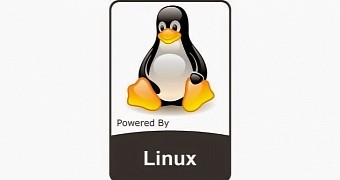Today, February 20, 2017, Collabora's Mark Filion is informing Softpedia about the contributions made by a total of ten Collabora developers to the recently released Linux 4.10 kernel.
Linux kernel 4.10 was released on Sunday, February 19, as you should already be aware of, and it brings a whole lot of goodies, among which we can mention virtual GPU (Graphics Processing Unit) support, Intel Cache Allocation Technology support, eBPF hooks for cgroups, as well as improved writeback management.
A new "perf c2c" tool that can be used for the analysis of cacheline contention on NUMA systems, hybrid block polling, a new "perf sched timehist" function that promises to provide us with detailed history of task scheduling, and experimental writeback cache and FAILFAST support for MD RAID5 are also included in Linux 4.10.
As expected, some of these goodies and many others have been contributed by the Collabora developers, who managed to add a total of 39 patches during the development cycle of Linux kernel 4.10. They are Gustavo Padovan, Emilio López, Fabien Lahoudere, Enric Balletbo i Serra, Tomeu Vizoso, Martyn Welch, Daniel Stone, Nicolas Dufresne, Gabriel Krisman Bertazi, and Emil Velikov.
Here are Collabora's most important contributions to Linux kernel 4.10
Among the most important contributions made by Collabora's devs to the Linux 4.10 kernel, we can mention a patch for an issue with the Intel i915 graphics driver when waiting for fences, significant startup time improvements for various apps by implementing support for reading PCI revisions for sysfs, and support for the NVD9128 panel.
Furthermore, they managed to enabled ULPI phy support for USB on i.MX development boards, add support for the Embedded Controller Sensor Hub of Google's Chrome OS, implement a set of selftests for Sync File Framework, add general-purpose input/output (GPIO) support for the CP2105 USB serial device, as well as Explicit Synchronization support to DRM and KMS.
Last but not least, Collabora's devs introduced a debugfs interface for capturing frames CRCs, which proves to be extremely useful for automated graphics testing and general debugging, fix an issue that prevented one of Collabora's kernelCI machines to boot, and improved Exynos4 FIMC to be able to round up the image size to the row size for tiled formats. More details and the full list of contributions can be found in the blog announcement.

 14 DAY TRIAL //
14 DAY TRIAL //